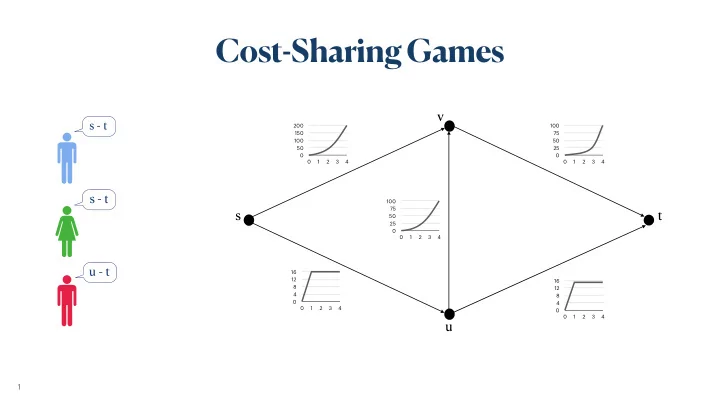

Cost-Sharing Games v s - t 200 100 150 75 100 50 50 25 0 0 0 1 2 3 4 0 1 2 3 4 s - t 100 75 s t 50 25 0 0 1 2 3 4 u - t 16 12 16 8 12 4 8 0 4 0 1 2 3 4 0 0 1 2 3 4 u 1
Cost-Sharing Games • Total cost of an outcome of the game = Sum of the costs of the edges. • Players’ decisions depend on the protocol . • Sel fi sh behavior of the players might lead in to ine ffi cient equilibria . • Our goal is to design protocols in which while players only think about their own cost-share , the equilibrium still has low social cost (i.e. Low PoA) 2
Cost-Sharing Games Inform a tion a l Power • What does the protocol know in de fi ning the cost share of player in edge i e - Oblivious : Just the set of players using e - Omniscient : Everything about the game - Resource-aware : Everything about and set of the players using G e How to use this extra information ? 3
Results Concave Convex PoA = 1 PoA = 1 Series-Parallel Graphs Generalization of the protocol for parallel links (symmetric) Incremental protocol [Moulin ’99] [Christodoulou et al. ’17] PoA = 2 + ε → PoA = Ω ( n ) Budget Balance Directed Acyclic Graphs n > 1 → PoA = 1 + ε (symmetric) → PoA > 1.18 Overcharging With overcharging → PoA = Ω ( n ) Budget Balance Multicast Overcharging → PoA = Ω ( n ) 4
Recommend
More recommend